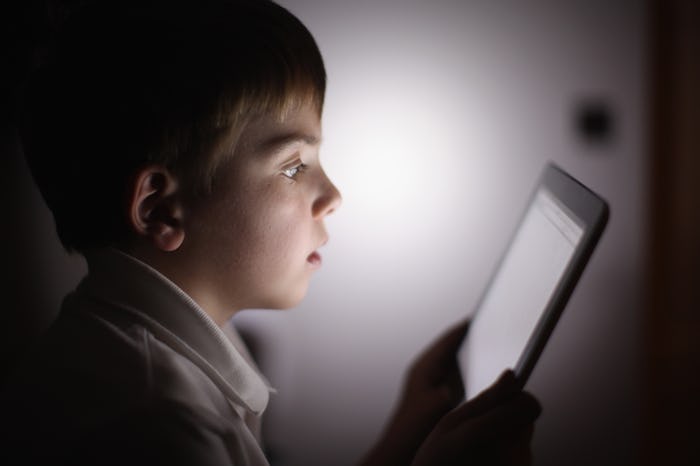News

How Using A Screen As Your Babysitter Could Harm Your Kids In The Long Run
It's hard to believe that the iPad has only been around for just seven years; the iPhone just turned 10 this past June. There's no denying that smart technology has changed the way our generation of parents interact — or rather, don't interact — with their kids. But before there was YouTube, our parents were warned about the dangers of the "boob tube" and their children. A new study from Gallup, funded by international toy company Melissa & Doug, revealed that kids are spending way more time with screens than their parents would prefer. The study calls out parents for using screens as a babysitter: Just because it's easier doesn't mean it's good for your kids in the long run.
Melissa & Doug's co-founder, Melissa Bernstein, told Quartz that leaving kids with screens, especially children too young for the technology, is irresponsible: "It’s like giving a kid a little bit of cocaine and telling them to be careful." While science doesn't necessarily make such a drastic equation between the effects of screens on kids with the effects of cocaine, her words do get to a central concern for many pediatricians: Excessive screen time impacts childhood development, and not always for the better.
Screen time affects a number of facets as a child grows, from toddlerhood all the way through their teenage years, according to the American Academy of Pediatrics. The AAP has compiled a number of studies that show overuse of screens in children puts them at risk for higher rates of obesity and sleep problems. In May, researchers presented findings at the Pediatric Academic Societies Meeting that found screens were linked to delayed speech development in toddlers. Studies have also found that screen time can cause social delays for children during their most critical stages of early childhood development, according to Psychology Today.
In October 2016, the AAP relaxed its guidelines on screen time, reversing an earlier stance that all children under the age of 2 should avoid screens entirely. The AAP screen time guidelines are indeed more realistic given the ubiquity of handheld screen technology and on-demand digital media. But as the Gallup study revealed, parents want their children to experience more play with less screens — it's just a whole lot easier to acquiesce to a child's demands for screen-based play than it is to usher them outside to play.
Bernstein cautioned against parents giving in too quickly to their kids and the ease that a "screen as babysitter" can provide. "Boredom is the best thing a child can face, and it’s the worst thing a parent can face,” Bernstein told Quartz. “It’s panic-inducing." Rather than passing the tablet to kids, be engaged with them and help them to figure out how to get the most out of play time without the involvement of a screen.